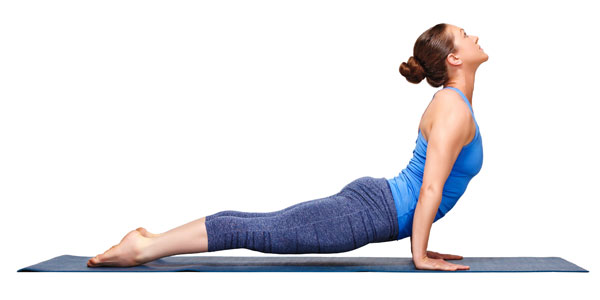Back to Basics: Recharge Your Routine for the New Year

The beginning of a new year is a great time to take stock of your daily habits and routines and see if they’re in line with your goals. Do you have any big-picture plans for the year? If so, are you supporting them with your daily habits and routines?
Whatever your intentions are for the new year, following an Ayurvedic routine can help you stay rested, energized, and balanced as you pursue your dreams and make them a reality. Ready for an Ayurvedic routine restart? Let’s get back to the basics.
Daily Detox

Every night while you sleep, your body is quietly cleaning house and sending waste and toxins (ama) to the proper elimination channels.
When you wake up in the morning, the first order of business is clearing those channels, which will leave you feeling bright, clear, and ready to tackle your priorities throughout the day.
The cornerstones of Ayurvedic daily detox are:
Emptying the bladder and bowels first thing in the morning (ideally, without straining). A glass of warm water to start the day can be helpful, as can taking Triphala Rose (MA505) before bed at night.
Scraping your tongue with a Tongue Cleaner to remove morning ama (that whitish sticky substance), for fresher breath, better digestion, and a cleaner mouth.
Self-Massage with Warm Oil

How can abhyanga (self-massage with warm oil) help you stay on point throughout the day?
The act of massaging warm, herbalised Ayurvedic Massage Oil into your skin before bathing each morning not only moisturizes your skin so you feel and look great, it also improves circulation and helps release ama in your skin, vascular system, and muscles so the body can eliminate it.
Additionally, it tones the muscles and helps lubricate the joints by increasing circulation around them. Perhaps more importantly in this context, abhyanga – being Vata balancing—also calms the nerves, promotes better sleep at night, and increases mental alertness and stamina throughout the day so you can get more done with less stress. Take that, to-do list!
Dialling in Your Diet

Fuel your plans for the year by following a diet that supports your body and mind.
Good health starts with good digestion, according to Ayurveda – and good digestion starts with good food. Whenever possible, fill your grocery cart with fresh, organic fruits and vegetables; protein-rich legumes and nuts; seasonal herbs and spices; ghee (clarified butter); and dairy products (if you can digest them) like whole milk and yoghurt. It’s also helpful to eat according to your dosha type (mind-body constitution); here are some diet and lifestyle tips for Vata dosha types, Pitta dosha types, and Kapha dosha types.
In Ayurveda, when you eat is just as important as what you eat. Ideally, eat your main meal of the day around noon, during the peak of Pitta’s daytime cycle (10 a.m. – 2 p.m.), when your digestive fire (Agni) is at its strongest and when your body can spend the remainder of your active day digesting. Kickstart your day with a warm, cooked breakfast, and keep dinner on the well cooked and light side to avoid overtaxing your system at night. You’ll wake up feeling more rested and fresher.

Exercise and Yoga Asanas
Exercise improves your circulation, tones your muscles, and uplifts your mind and body – all of which will help you stay energized and focused throughout the day.
But did you know that different dosha types need different kinds of exercise to stay balanced?
- Vata types need less exercise and benefit from lighter activities like yoga and walking.
- Pitta types can handle moderate amounts of exercise and do well with cooling, outdoorsy activities like skiing and swimming.
- Earthy Kaphas benefit from vigorous exercises, such as jogging and aerobics.

Whatever your body type, the goal is to feel happy and energized, not strained or exhausted. Listen to your body during and after exercise. If you generally feel uplifted emotionally and energized physically, then you are probably on the right track.
One type of exercise that’s balancing for all body types and ages is Yoga asana, which balances all three doshas, tones the muscles, and rejuvenates the body’s organs. Even just taking a walk around the block (especially in the morning) will help you feel refreshed, revitalized, and ready to cross that next item off your priority list.
Early to Bed, Early to Rise

When you’re rested, everything just seems easier, doesn’t it? But when you’re not, you can lose sight of your big-picture goals and even have trouble tackling smaller tasks.
To stay fresh for whatever the day brings, try to get to bed before 10 p.m., right before the end of Kapha’s evening cycle (6 p.m. – 10 p.m.) and before lively Pitta’s evening cycle kicks in (10 p.m. – 2 a.m.). Trouble falling asleep? Try sipping a soothing mug of Peace at Night Tea or Vata Tea before bed. For herbal support, try one tablet each of Ashwagandha and Blissful Sleep (MA1778) one or two hours before bedtime.
Following the Ayurvedic clock in the morning is helpful, too. If you sleep well into Kapha time (6 a.m. – 10 a.m.), you might feel more lethargic during the day; it’s better to rise with the sun (generally around 6 a.m., depending on your time zone) and at the tail-end of Vata’s lively morning cycle, when your creativity is at its peak.
With these Ayurvedic routine mainstays in mind, we wish you a healthy, happy, productive and fulfilling year ahead!
© Copyright 2019 Maharishi Ayurvedic Products International, Inc. (MAPI).
DISCLAIMER: The information in this document is presented for the sole purpose of imparting education on Maharishi AyurVeda and neither the information nor the products are intended to diagnose, treat, mitigate, cure or prevent any disease. If you have a medical condition or are pregnant or lactating, please consult a health professional and it is recommended that you speak with your physician before making significant changes to your diet or routine.





